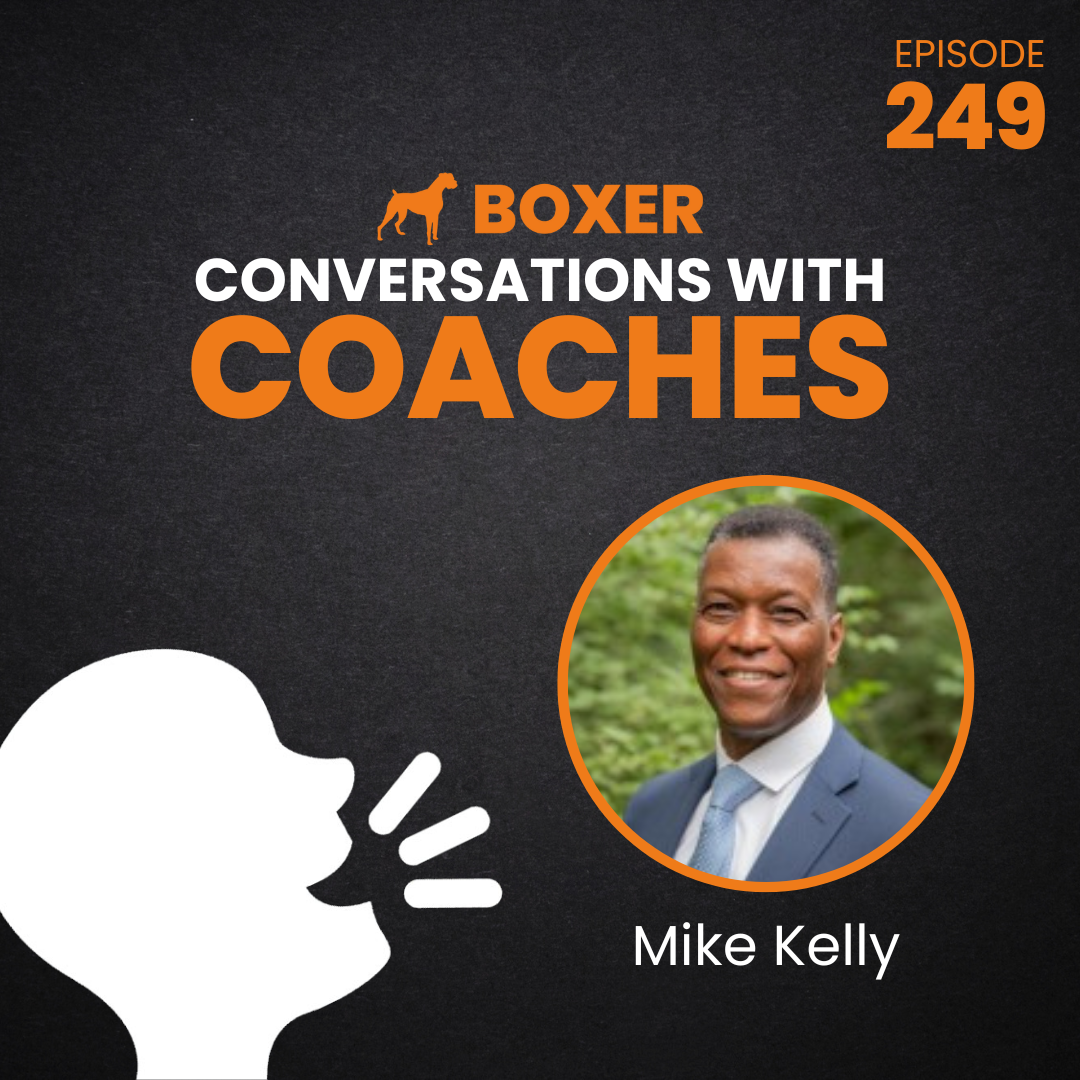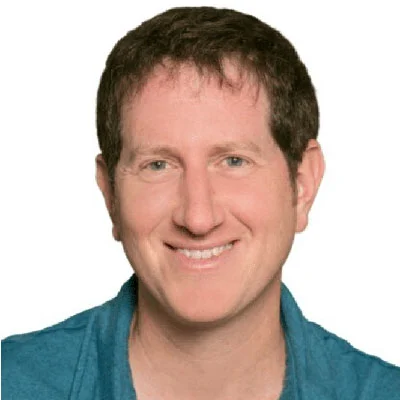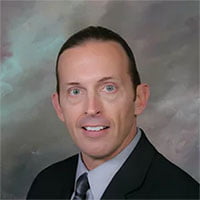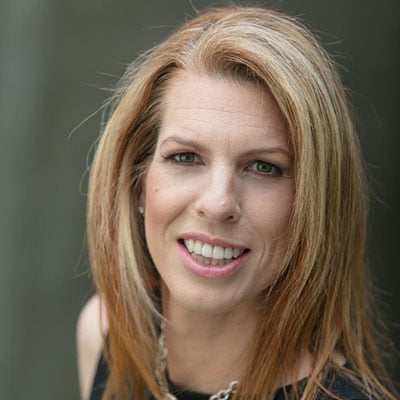[00:00:00] Kevin Stafford: Hello everyone and welcome to another episode of the Conversations with Coaches podcast. I’m your host Kevin and today I have just had the, quite frankly, the pleasure of making Mike Kelly’s acquaintance. He is fantastic. We had this long conversation, not long conversation, we talked a few minutes about where he’s at, he’s Cincinnati, Ohio, and how that’s been a city that’s always kind of been in the back of my mind as a place I would love to go and visit, but that is neither here nor there.
Needless to say, I’m quite charmed by Mike and I’m very pleased to introduce him to you. Mike is an executive coach. financial planner and board director. He has held senior leadership roles with big brands such as Macy’s and Michelin. Mike has a mission of helping individuals and organizations achieve positive and measurable results.
He accomplishes this through his firm’s Right Path Enterprises and Kelly Financial Planning. Mike, I’m, like I said, I’m very pleased to meet you. Thank you so much for spending some time with me today and I’m just excited to dive into your, to your origin story as a coach.
[00:00:57] Mike Kelly: Thank you, Kevin. Thanks for having me.
It’s great to be with you and I look forward to our conversation. Yeah,
[00:01:02] Kevin Stafford: let’s, let’s dive right in. How’d you, how’d you get your powers? I often like to cheekily refer to it as your superhero origin story, since that’s still very much a big part of, you know, movies and television or whatever. But I love the, the story of how a coach became a coach.
Now, for some, it’s like they maybe always, always had it in them, or maybe it started very young. Yeah. Some people actually many coaches pivoted from an already successful career in some particular industry. So how did you, how did you discover that you wanted to be a coach? How did you find out that maybe you already were a coach?
What was the inciting incident, so to speak?
[00:01:37] Mike Kelly: Well, I can take you way, way back, you know, being an athlete, certainly you’re coached. High school, college, college basketball player, actual coach, athletics and from the athletic sense of the word was certainly an introduction to coaching. But I remember my first job working in the corporate space, realizing that most leaders aren’t really good leaders.
I was at the totem pole and I realized that, wait a minute, a lot of the people that are reporting to a little bit flawed and there were stories that I could share that are related to that. But anyway, I realized that as a leader, I needs to really work harder myself in order to really be able to lead people well.
And at that point, I found people who would coach me informally, mentors, I guess you’d call them. And ultimately, I got the opportunity to do the same for other people. And I realized the power of coaching. And I thought, well, you know what? I’m going to take this outside of the corporate arena. And I’m going to help people in the community.
And as I was involved in nonprofit boards and other things, I ended up informally coaching people and then formally coaching people. And inside organizations that I work for, in addition to teams that I led, like Michelin and with Macy’s. Thanks. I found, found myself coaching people on my team, but also coaching others.
So I started to study the craft. And my, my wife and I started right path enterprises in 2014, I was still an executive with Macy’s and I would, I would before work after work. Sometimes during lunch, I would coach people outside the organization. But anyway, I left Macy’s in 2017 to 2016 actually to start.
Both firms and volunteer in the community. And it was just in my, in my opinion, it was probably, as I think about it, it was more of an organic thing over time. I saw the opportunity to help people because I was helped from a coaching standpoint. And actually I’ll share one other thing, Kevin, when I left Macy’s, I actually hired a coach.
I was already certified as a coach, but I hired a coach to help me make that transition mentally. And like literally, and I found that to be a great investment.
[00:03:34] Kevin Stafford: Every great coach has a coach, I have found that it’s important. It really is. And I like I, in two different ways, you identified one of the most powerful ways in which a coach can can help someone.
It’s those moments of transition where people either fall through the cracks or just needs need some help going over a certain bridge. And I really do. I really love that you identified that moving into the corporate world in particular. And you found that the people who were in the positions of leadership.
Weren’t exactly leaders or they didn’t really have the skills. And I feel like that that’s an area that is often very underdeveloped is that transition from, I mean, you can have someone in just about any industry work their way up a corporate ladder by being good at the, you know, their initial job.
They’re good at, you know, whatever, whatever the job is that they have. And then they get moved up and moved up and moved up. And before you know it, they’re in a leadership position. That now requires a pretty drastically different skill set in order to do well, and yet all of their expertise that led them to that position was for a job they no longer have.
And you find a lot of people, they get lost there, and whether it’s through their own inattention, or maybe their own arrogance, or quite frankly, just through not having the resources and the, The dedicated attention available to help develop their leadership qualities, their leadership skills. Those are skills you can learn.
Anybody can be a leader if you apply yourself and have the right help. And I just love that you noticed looking around and like there’s a lot of leadership positions around me that aren’t really, I don’t see a lot of leaders and that’s, that, that needs some, that needs some attention. I really, I really appreciate that.
There’s those transition points. A lot of, a lot of, a lot of good people get lost in that transition.
[00:05:13] Mike Kelly: Yes. Yes. So easy to get lost. And also in corporations, sometimes it’s so easy to undervalue some of these essential, essential skills that we call soft skills. So often, I think that they’re essential skills, leadership, the ability to interpersonal skills, the ability to motivate, inspire, encourage, hold others accountable, the ability to listen well, some of those things that seem seem and sound so simple, but they’re so difficult for us to, um, To really internalize and also display when we’re engaging others.
And we often need help. And one of the things I’ll share too, that I learned, Kevin is the power of working hard on yourself. It’s so easy to work hard at your job. It’s so easy to work hard at trying to lead other people or convince other people and influence other people. But so often, if we haven’t done that work on ourselves, done the work on ourselves to develop our character and our leadership ability, our conduct will reflect that, and I see that as well.
And it’s not just at work, it’s in all areas of life, being a whole person. Who’s authentic and real and others focused, and we often need help to get there.
[00:06:20] Kevin Stafford: I think we always need some help to get there. Quite frankly, we might be able to get there on our own, but some, some help to get there. I think it’s going to make the journey that much better.
And I, I really liked that you threw that term out there. A lot of people have thrown out there for a lot of years. That’s soft skills. I’ve always, I’ve always felt like. I’ve always felt this way, but have learned more that, oh, this is just a way for people to dismiss a difficult challenge. Because if you call it a soft skill, maybe it can’t be taught.
Maybe you just got it or you don’t. Which is just, just shorthand, a way for people to be like, I, this is too big and too scary for me, I don’t want to do it. So I’m not going to do it. I’ll call it soft skill. Whatever you have to call it, working on it. And that’s, I totally agree with you. Those. Those people who, and I think there’s more and more people now, because there’s a lot more attention on it and there are more coaches to help out in this particular arena, if I may say so, they are paying attention to how they have to develop themselves, not in just some sort of like personal development self help section in a bookstore.
But in real meaningful ways, and we actually also, I feel another way that we’ve developed is that we have identified ways to develop these skills that maybe we weren’t quite so sure about 10, years ago, where there are, there are actual techniques to develop the leadership skills. You need the ability to communicate, to connect, to listen, to devote your attention, to respond in ways that are both agile and very appropriate for whatever the situation is, and whoever the person is.
These aren’t just personality traits that you’re born with. Some people are obviously a little bit better at them than others to start with. But these are skills that can and should be developed, and I just, that’s one of the things I love the most about coaching, is it turns that concept of soft skills into a hard reality, and not hard, hard isn’t difficult of course, but hard as in tangible, as in helpful, as in real things that you can work on.
When you can get your hands on something like that, I feel like it makes it, it makes it way less of a boogeyman, and way more of a tool, you know what I mean?
[00:08:17] Mike Kelly: Yes, it does. And feedback helps. I was just on the phone before you and I got together with the client, and we were spending some time talking about feedback, identifying certain soft spots, but also areas of gifting, but really determined, like, what do we do with this now that we know it?
And getting that feedback, though, is not an easy thing. You have to have a certain level of humility. You really have to create an environment where people are willing to tell you what you need to hear rather than what you want to hear. But you also have to have that level of humility to receive that and then do something with it.
And feedback I’ve found to be, I know in my own life, extremely powerful. Because we’re conditioned. We see the world through our own lens. And a lot of that is made up by, you know, who, who we’ve been in many respects, taught or caught to be things that we caught. And we become this person with all these habits.
Some of them are good, but some of them are bad. So feedback I’ve learned as part of this whole coaching process can be really helpful and not limiting that feedback just to people at work. You can also get it from friends, from family, from. People in your community, your church community, or if you’re volunteering somewhere, so you have that more holistic perspective that can be really powerful as well.
So coaching is, in my opinion, is so important and everyone needs a coach.
[00:09:30] Kevin Stafford: I couldn’t agree more. And I love the giving and receiving of feedback is, that’s just one of those life skills. It’s like how to, it’s just like gift giving, how to give a gift, how to receive a gift. There’s, there’s a grace to it that just allows you to be of such great service to yourself and to the people around you, your, your community.
It’s just, there’s, yeah, we can talk about just that topic for hours. Oh, yes. Let’s, let’s, let’s move into, let’s move into what your coaching looks like today. I like to ask this question and almost like in an interrogation form, who do you coach and how do you coach them? You know, what did you know? When did you know it?
The who do you coach obviously is just who do you coach the, do you have an industry that you tend to focus on or industries, a demographic that you tend to work a lot with, however, that looks for you and your businesses. And then the, how do you coach them is basically you can take that as your methodology, whatever your frameworks might be your particular methodology, when it comes to one to one coaching or small group coaching, like whether it’s a mastermind or whether it’s a larger groups in a corporate environment.
If you write books, if you do keynote speeches, if you create coursework, all of the above. So yeah, who do you coach and how do you coach them today?
[00:10:41] Mike Kelly: So I coach, I’m a financial advisor, as I mentioned, certified financial planner, registered life planner, and a certified executive coach. And a lot of times I’ll coach people who are at a level within the organization where they have influence, be it a vice president level or above.
Oftentimes I am told that they are very, very talented, but there’s just something about them that won’t allow them to break through and go to higher levels. So I’m brought in to coach them. And this can be in corporations, large corporations, but also small businesses as well. Being a financial advisor, I am noticing that I’m getting the opportunity to support a lot more registered investment advisory firms, financial planning firms, because I have somewhat of a background there, and that has been so rewarding as well.
And also in the nonprofit arena. I volunteer a lot. I have the opportunity to partner with nonprofit leaders to help them strengthen their leadership skills and also the skills of their teams. And oftentimes that might entail coaching a top leader. It also might entail going in with the process over time to help them identify where opportunities are, and then build those skills to the point where they’re competent, you know, unconsciously competent, as we’d like to say.
So I do that, but I have a couple processes as far as my one on one coaching process. That process starts with spending time getting feedback. I actually take them through a series of assessments. It’s on a portal, something called Cloverleaf. So they’ll take discs, 16 types, Enneagrams, strength finders, maybe one other.
So we have those results. And then I’ll do something of a 360 type assessment process, where I actually contact people that maybe they report to, people that are peers, people that, that report to them. And I will ask them three questions. What are Kevin’s strengths? Or gifts. What are his weaknesses or soft spots?
What else would you want Kevin to know? So I gather that feedback. We are, we take a look at what the portal says, said from the summary of all the assessments that were taken online. And then we talk about how this shows up every day at work. This is what people are saying. This is how it’s impacting those around you.
I’ve had people break down, start crying when I share those results. But after that, Kevin, we determine, okay, what are we going to do with this? Then we set some real important goals. Related to how we’re going to move forward together and what we’re going after. And I have process that I integrate into that.
1 is called getting results through others. If they have people that report to them, if they’re individual contributors, it’s improving performance and results and both of these processes, we use spatial repetition. So, you’re reading, you’re listening to material, there are exercises involved in this, and there are multi session processes.
And over time, you see people change. They, they change. They, they’re, you’re aware. You’re hungry. You start to grow. You start to get the feedback that you are growing. You’re changing and you want more. And then you take some of that back to your team. So that is something that I, I enjoy and I’m all about transformation.
I’m not doing this just to do it. I want to see people transform so that they can go out and and help other people do the same thing.
[00:13:45] Kevin Stafford: Yeah. Not just another book on the shelf or, or, or workbook from that, from that seminar. It’s it’s I, and I love it. And it’s, that’s reflected in your process too. It’s ground, it’s tons of data that can, that’s very like, you know, very, very actual, very clear, very understandable, completely intermeshed with the.
lived experience of what people’s experience of you is and how that matches up. And so you’re basically charting, you’re, you’re charting your course, you’re looking at the map of you and you need, I mean, not to put too fine a point on it, you need data points, you need points on that map if you want to know your location.
And then once you, and then of course the final ingredient that again, it’s very easy to go right up to that point. And then not take action, put it, put it to work to put all that solid stuff you’re learning to work and then not just imagine the change you might see in your life, but to experience it.
And I think you identified it perfectly. It’s, it’s just, it’s catchy. It’s contagious in all the right ways. You, you catch the fever, other people around you catch the fever in the, in the positive ways. I know contagious isn’t exactly the best analogy these days, but still, I feel like it works because it really is, it really sparks you.
And it really, you’re like, I, I want more of this. How do I get, how do I get more? How do I keep going? I want to keep going. That’s not to say you want more. You want to keep going forward. And you also like, and I feel like this is, If it gets coached, but it happens naturally to it happens without, it happens unspoken kind of like you said, unconsciously, you start looking for opportunities to give other people the same gift that you’re being given by your coach.
[00:15:15] Mike Kelly: Yes, gift, the gift of feedback. That is. We actually wrote a training program called to get the feedback when I was at Macy’s leading a training function because feedback was it was very difficult for people to give it and some people didn’t know how to receive it. You know, you asked me about speaking.
So I’ll just do some speaking on on some of these topics. In addition, I’ve written a book called leader fluent secrets of leadership essential to effectively leading yourself and positively influencing others. And that is something that is I’m really excited about as well because it sort of lays out some of the things that we’ve talked about because again.
Before you can lead others, you got to learn to lead yourself. That’s, that’s more of a Philip Massinger type quote. He that will govern others must first be master of himself or herself. Set herself
[00:15:59] Kevin Stafford: in there as well. And we’ve, we’ve got that lesson all throughout our, our daily lives. I mean, to think about people, people understanding of, you got to put your own mask on first.
When you’re on an airplane and the oxygen mask dropped down, like almost everybody in the world has gotten that, gotten that lesson, that very practical lesson to where it’s like, in the case of emergency, you know, put your own mask on first. That concept is everywhere. It’s like, take, work on your, take care of yourself, not because you’re selfish, but because you want to be able to be of service to others, because you want to be a part of a community and be contributing.
And that’s, that really, it’s just, it’s, it’s so simple and it makes so much sense to people. But people people find themselves getting lost and figuring out how to put that into action. And that’s, that is exactly why coaching and more coaches like you, I feel like are necessary, not just not just a luxury, really a requirement for where we’re going as a community and as a society.
And so yeah, it’s Mostly I’m just I’m praising you so forgive me I find myself I find myself in that mode very frequently when I’m listening to a coach, talk about their approach and their and their modalities and everything that they’re doing and why they’re being of service and I just, I start getting really like emotionally invested in the process and so I find myself just praising but I really do think like you have your approach is so detailed.
And also so open to just personal development in a way that’s not that’s, it’s not just a book on a shelf. It’s not just sort of an ephemeral concept. It’s not just a, you know, a motivational quote on a wall. It is all of that. And then some, it’s, it’s the complete package so I really appreciate that you have that approach because I feel like a lot of people will hyper focus on one aspect of it.
Like, I’m going to get really good at giving feedback. Are you now? I feel like a lot of people think they might be good at giving feedback. Are they, are you really good at it? Or do you just like to do it? And is it really feedback or is it, is it something else? Like, I feel like there’s lots, lots, lots of places to get lost on that journey.
[00:17:52] Mike Kelly: Yes, there is. Yes, there is. There, there are a lot of places to get lost on the journey. And one of the, one of the thing I’ll add, Kevin, is I also integrate this into my work as a financial advisor. I have a hourly fee only financial planning firm and I don’t sell product or receive commissions from brokerage houses or mutual fund companies.
I charge clients an hourly or project rate for my services. So we build comprehensive plans that people actually take action on. So I integrate my coaching into that as well. And there are many clients, once we build a plan, they take action. I’m sure I serve as an accountability partner. So I get my coaching skills and my financial planning practice as well, or firm.
And I enjoy it because, you know, when to see people Realize their true potential or achieve goals that matter to them. It gives me joy and it’s, it’s something that motivates me to continue to do the work.
[00:18:39] Kevin Stafford: Yeah. I often find myself, I find coaches as well, making the, the analogy of just like watching a sunrise or watching the light go on in somebody’s eyes or behind their face, where it’s like, you literally see them light up when they just like, it’s like this, like a clap of thunder.
They got it. They’re like that moment. There’s really, I mean, I hate to say there’s nothing like it because it’s sort of cliche, but there’s nothing like it. It’s, it’s, it’s one of the best experiences you can have as a human being, I feel like is to help someone have that light bulb moment, that dawning moment.
And there’s, it’s, I like the dawning moment because there’s really like, I’m a sunrise lover. We talked before I hit record about loving the ocean and just seeing the ocean come up. Over, over, over that, over that horizon is, it’s just, it’s, it’s an experience that just, it moved me and all of my being, and it’s, it’s honestly, it is the exact same when you’re able to help someone have that experience in their, in their own life.
[00:19:28] Mike Kelly: Yes, it is. Yes, it is. Yes, it is. So thank you for the work you’re doing as well. Yeah, I’m happy to. That’s important because it’s, it’s, it’s not easy. At the coaching world, it’s not easy and the coaching world is challenged like many other industries, but having support and having the types of systems that you and your organization actually make available can be helpful to coaches as they’re doing the work that they do.
[00:19:53] Kevin Stafford: Yeah, we hope so. And yeah, it’s another analogy, a rising tide raises all boats. Any, any, any bit, any bit of buoyancy you can add. To that, to that, to that, to that journey, to that rising tide is just, it’s, bring it on. So I’ve been, speaking of my job, I have to be the responsible host because I, I, as I suspected, I could talk to you for hours.
You’re, you’re just a font of, of inspiration and wisdom, but. Where can people find out more about you if they just want to learn more about who you are, your journey, what you’ve done in life and what you’re doing now, and then where can people if it’s that’s different, where can people best connect with you?
Is there a social media profile that you’re most active on? Do you have a website where people can, can, you know, drop an email address in and start a conversation or book a call if they want to explore, you know, something more formal? What can people do next? To get more of you.
[00:20:40] Mike Kelly: Yes. Yes. Yes. Well, you can find me on certainly two websites, right?
Like take the right path, right? Path enterprises. com. And then I have Kelly financial planning. com. You can get me through either website. I’m also on LinkedIn. Um, on LinkedIn, you can find me there on Facebook as well, but more active on LinkedIn and as a Twitter, Twitter or X account. Now you can find find this on, but primarily LinkedIn and my websites and you can connect with me there.
Would love to have a conversation with anyone who’s interested in talking about coaching and transformation.
[00:21:14] Kevin Stafford: I love it. Well, Mike, thank you for spending a little bit of time with me today. Like I said, I’m just like selfishly, I could keep you for hours recording or not, but I’m just, I’m really grateful for the time that we got to share today.
And I’m grateful to have, to have gotten to know you just, just knowing that you’re out there in the world, doing this work makes me happy. If that makes sense. It’s just, it makes me feel good to know that someone with your expertise and your intention and attention is out there doing, doing the good work of coaching and helping people to, to not just change, but to transform.
And that’s so, so thank you for your time and thank you for what you do.
[00:21:46] Mike Kelly: You’re welcome. And again, Kevin, thank you for having me and all the best to you
[00:21:50] Kevin Stafford: and to the audience out there, you know, to do next links to everything that we talked about, it’ll be in the show notes, take action, do yourself the favor, and even if, even if Mike’s not the coach for you, do yourself the favor of getting to know him.
Cause in my, my very limited experience, I could tell you, I recommend it. It’s great. So do what you do best audience. Thank you for listening. And we’ll talk to you again here very soon.











